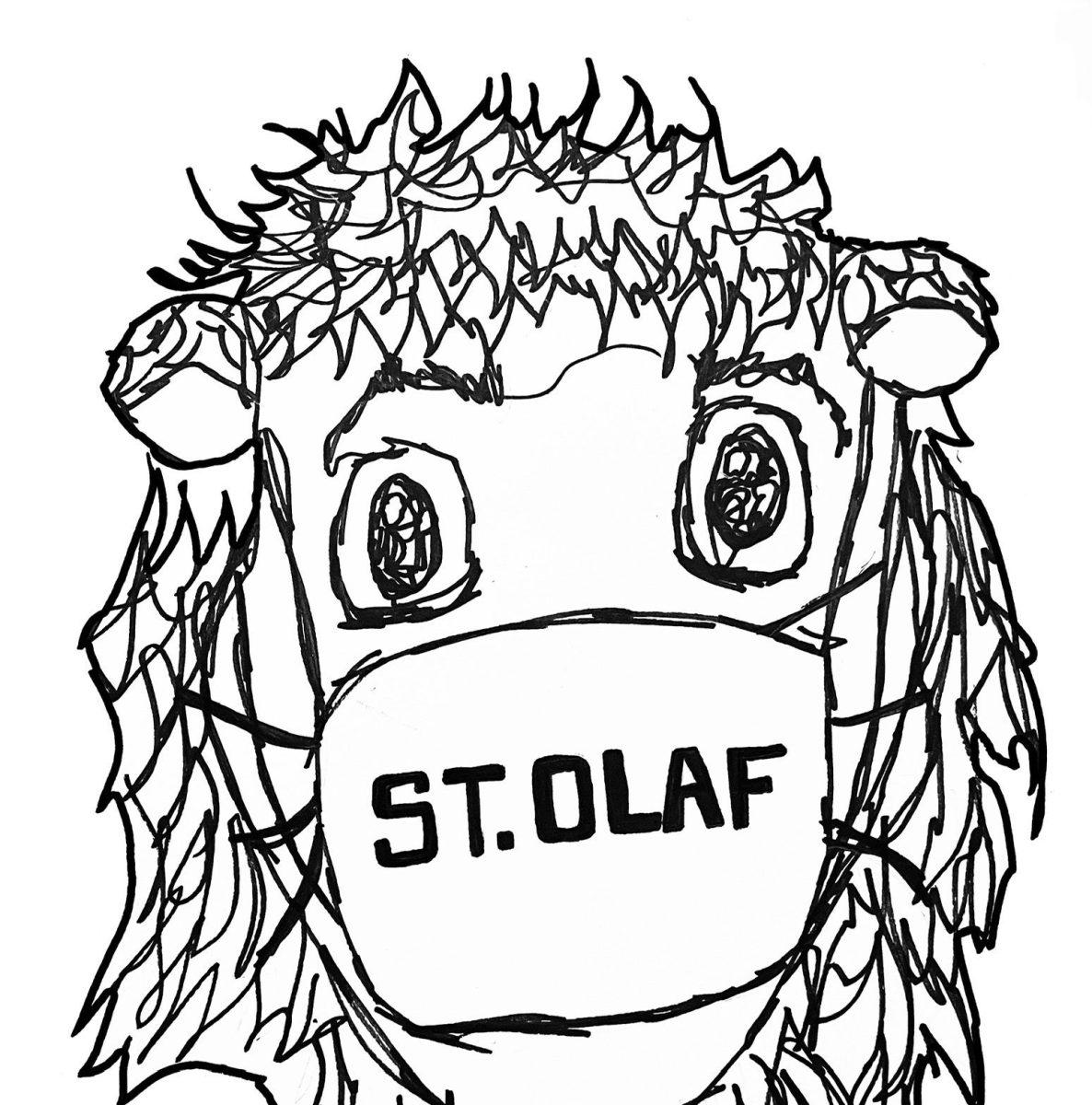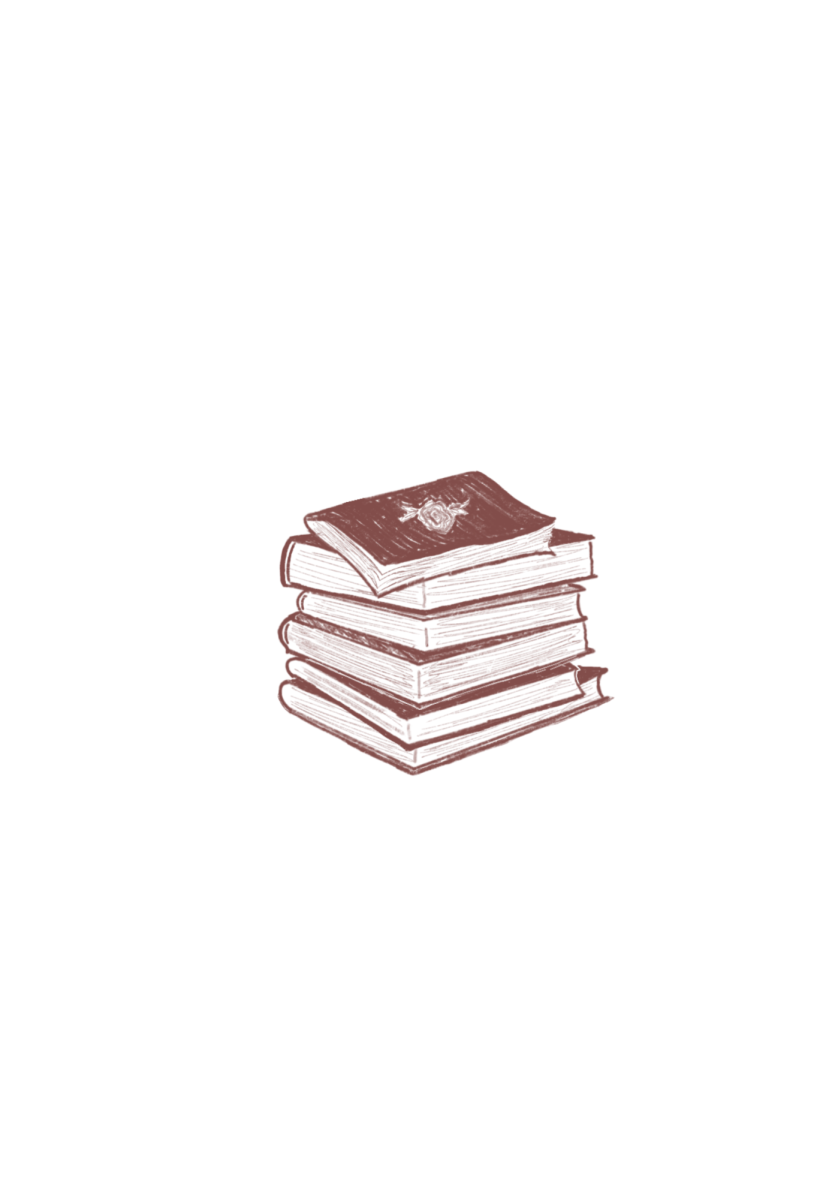Graphic: Finley Hogan/The Olaf Messenger
To anyone who contests people’s waning ability to remember, I raise as an example the speed at which we all forgot about COVID-19. On campus and nationwide, a wave of the virus is happening to mark the beginning of the academic year, but people seem to forget about the virus that made the world stop turning for two bitter years of purgatory. St. Olaf’s weak COVID-19 policy and the apathy of the student body are putting everyone at risk.
While I was horrified when I tested positive for the virus, what made my stomach really churn was not the taxing symptoms, but reading the college’s COVID-19 guidelines. To start with, St. Olaf does not require masking, even in indoor spaces where the virus is most likely to be transmitted. More concerningly, as I think that this precaution is the least inconvenient, the college does not require updated vaccinations.
COVID-19 is here to stay, but that should not mean making regulations a thing of the past, as its devastating effects are all too real. Immunocompromised people still struggle with protecting themselves, and people with long COVID-19 are yet to shake the persisting symptoms. For the first day of quarantine, I had a friend leave plates of food outside of my door. After reading the protocol on the website, I was surprised to find out that I had to walk to Stav Hall to get my to-go meals. I thought it was a bit reckless since I could run into people on my way to Stav, but ultimately figured if I took the emergency stairs and sanitized any surfaces I touched, I would minimize my contact with other people. Although the policy on the website asks you to pick up your meals from Stav 4-4:30, the food is rarely ready before 4:25. The first day, I kept waiting and waiting for my prepackaged meal. Close to 4:30, a Stav worker walked towards me, but the takeout container in their hand was empty. Apparently, there are no prepackaged meals. Instead, those infected with covid are expected to go through the caf stations as one would any other day. I do not understand the reasoning behind this decision by Residence Life.
The epidemiological ramifications of having St. Olaf’s infected students use and touch the same surfaces every healthy person on campus touches are obvious. To make matters worse, there were occasions in which Bon App would let us in close to dinner time, then also let uninfected students in before infected students were done getting their food. I asked myself what the point of isolating was if I was going to infect people regardless.
What fed my discouragement was the slew of posts on St. Olaf’s social media, Fizz, mocking individuals who were isolating themselves. One post pleaded with people to not go to class if they were sick, and was met with “have fun flunking,” among other jeers. Many of the people I kn were sick but chose not to test. Some admitted to being infected with COVID-19 but still chose to go to class. It seems that the student body would rather endanger each other rather than be inconvenienced by catching up on schoolwork. But the blame does not fall entirely on the students. This selfishness certainly arises from the notion that professors are not so forgiving to people who have to take a week off to isolate themselves. I was disappointed to confirm that although the majority of my professors were incredibly supportive and understanding, there are some who are not willing to cooperate with.
St. Olaf needs to act swiftly to revise its COVID-19 policy, as we need to protect immunocompromised members of our community. Free testing should be provided by the college. The website’s link to “free” COVID-19 tests does not work because the limit sent to the College address is always exceeded. Professors need to reiterate their commitment to supporting students and disprove the notion that students would get penalized for missing class. If you are sick, isolate yourself to ensure that you don’t hold the health of immunocompromised people in your hands.





